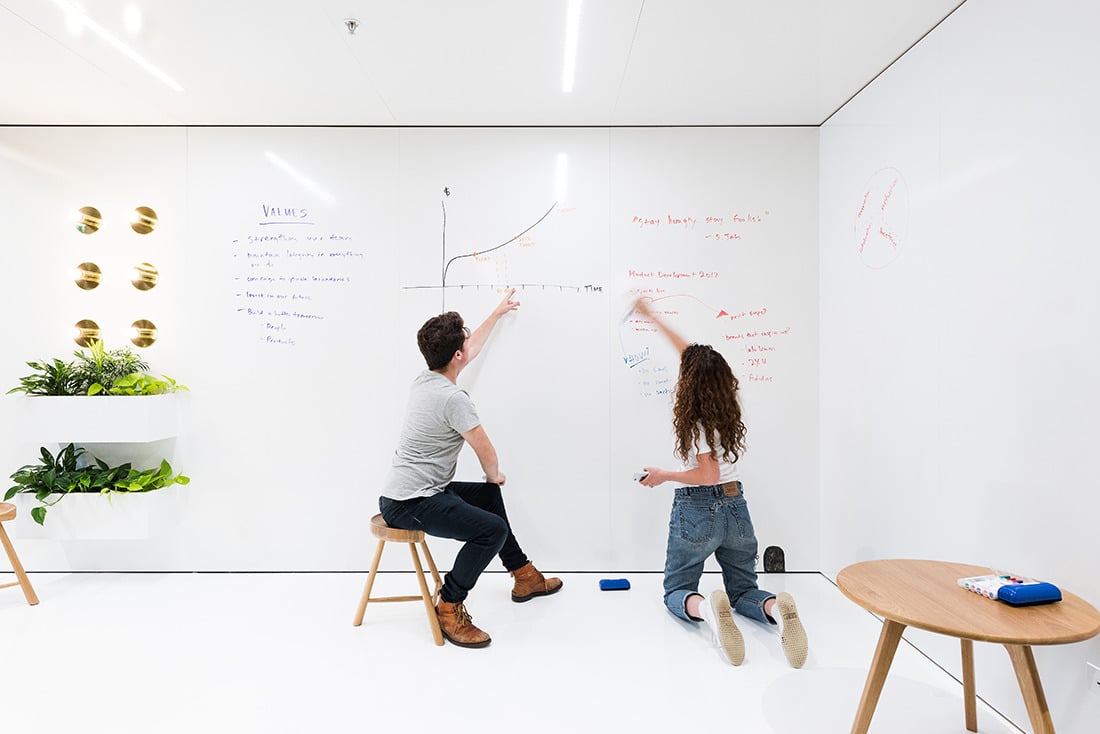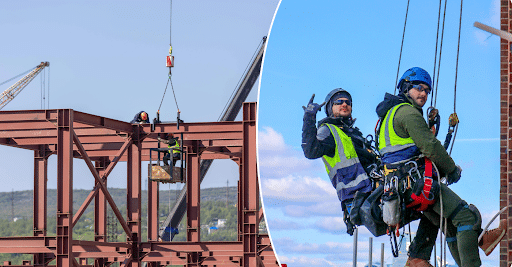Architects are constantly pushing the boundaries of modern office design to create spaces that foster collaboration, creativity, and productivity.
Whiteboard paint is one transformative tool that has emerged as a staple in this revolution. This clever solution transforms ordinary surfaces into interactive canvases, allowing architects to reimagine traditional office spaces while encouraging dynamic employee engagement.
Table of Contents
The Influence of Whiteboard Paint:
Whiteboard paint, a dry-erase coating that turns walls and other surfaces into erasable canvases, has transformed office design.
Architects are using this innovative solution to deviate from traditional norms, creating an environment that encourages free thinking, brainstorming, and collaboration. The versatility of whiteboard paint allows architects to unleash their creativity, turning any flat surface into a hub for ideas and innovation.
Breaking Down Boundaries:
One of the most important ways architects use whiteboard paint is to break down physical boundaries within office spaces. Traditional offices are frequently made up of rigid cubicles and fixed meeting rooms, which limits spontaneous collaboration. Architects can use whiteboard paint to turn entire walls into collaborative spaces, removing the constraints of traditional meeting rooms and encouraging a more open and inclusive work environment.
The Collaborative Hub:
Architects are reimagining the traditional meeting room as a collaborative hub. Instead of using static whiteboards and flip charts, entire walls can now be painted with whiteboard paint to create an immersive environment for brainstorming sessions, project planning, and idea generation. This dynamic shift not only enhances teamwork but also fosters a sense of inclusivity and transparency within the workplace.
Encouraging Creativity and Innovation:
Whiteboard paint acts as a catalyst for creativity and innovation within office spaces. Architects can strategically place these writable surfaces in hallways and lounge areas, giving staff members a place to hold spontaneous brainstorming sessions. Allowing team members to freely scribble, doodle, and record ideas in a collaborative environment fosters an innovative culture by enabling them to think creatively and beyond the box.
Flexibility and Adaptability:
Whiteboard paint’s flexibility and adaptability are two of its main benefits. It can be applied to nearly any surface, including furniture, walls, and columns. This adaptability makes it possible to design multipurpose areas that are simple to modify to meet changing office requirements.
Enhancing Communication:
Communication is at the heart of any successful workplace, and whiteboard paint can help to improve it. Architects have been cleverly positioning writable surfaces in high-traffic areas like break rooms and common areas to promote spontaneous communication and idea-sharing. Whiteboard paint transforms ordinary spaces into dynamic communication hubs, whether it’s a quick sketch to illustrate a concept or a message left for a colleague.
Conclusion:
Architects are embracing innovative solutions to create spaces that inspire, engage, and foster collaboration in the domain of modern office design. In this revolution, whiteboard paint has emerged as a powerful tool, allowing architects to break down physical barriers, encourage creativity, and improve communication within office environments.
As the canvas of innovation continues to expand, the impact of whiteboard paint on the way we work is undeniable, transforming traditional office spaces into dynamic hubs of collaboration and inspiration.





